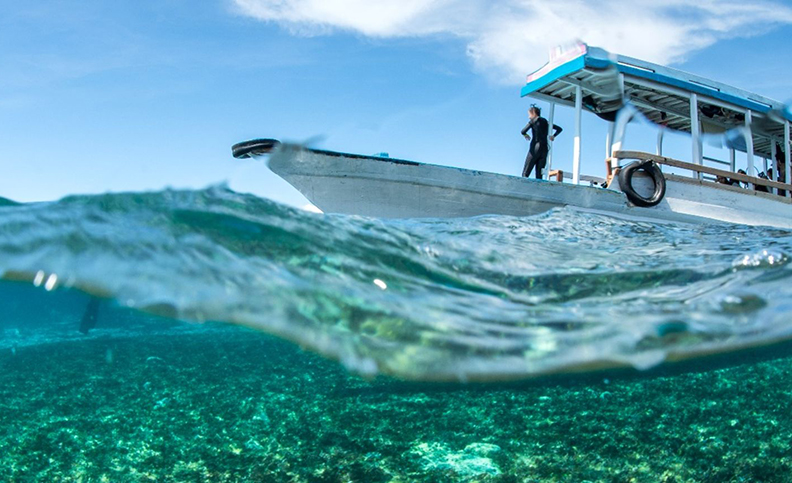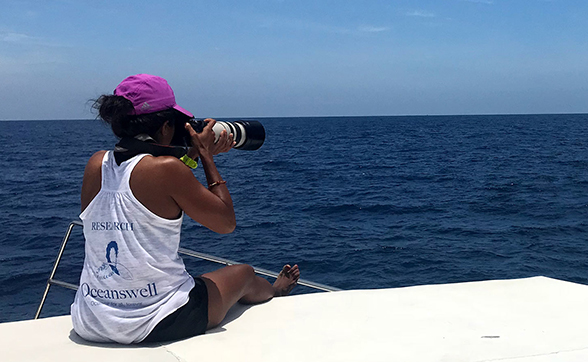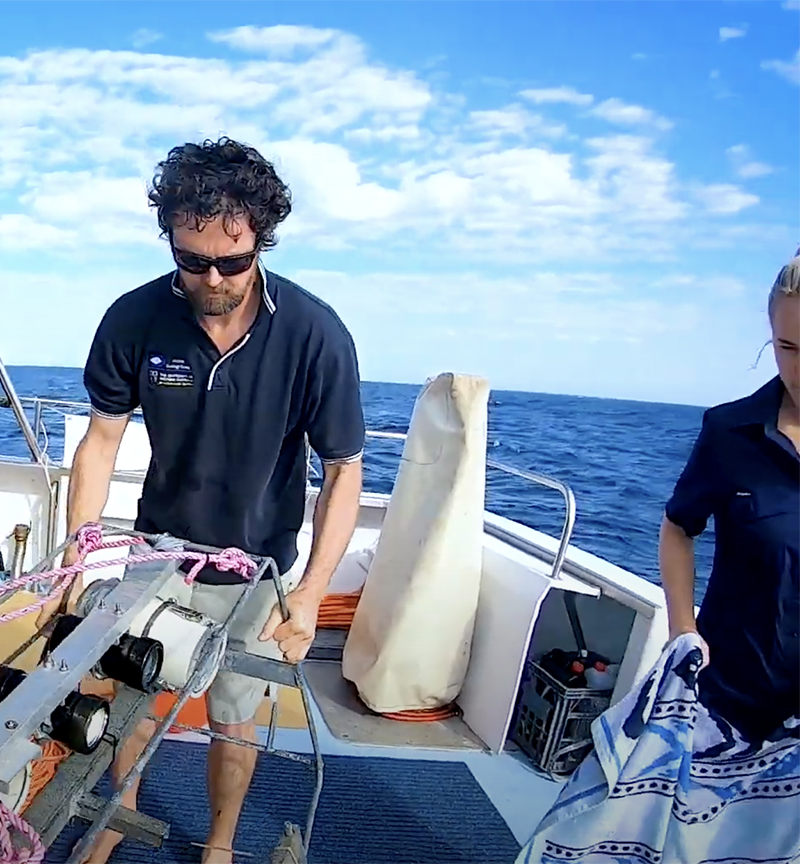Undergraduate
Marine Biology
Contact us
Address
Student Central
The University of Western Australia (M355), 35 Stirling Highway, Perth, Western Australia 6009
Telephone
131 UWA (131 892)
International
(+61 8) 6488 1000
Hours
Frequently asked questions
Events you may be interested in
Show more eventsCareers and further study
This course opens up a world of future study pathways and career opportunities.
Career Pathways
You might pursue career opportunities in the following industries:
- Marine environmental consulting
- Government agencies that manage fisheries (e.g. DPRID), marine conservation (e.g. DBCA) or lead marine research projects (e.g. CSIRO and AIMS)
- Resource industry
- Marine industry
- Marine renewables
- Aquaculture
- NGOs
- Academia
Further Study
You might consider further studies in:
- Master of Biological Science
- or Bachelor of Science (Honours) - Marine Science
Master of Biological Science
Fees and scholarships
Domestic Student Fees
For Commonwealth-supported places, student contribution amounts are charged by unit, based on area of study. For a fee estimate, go to the Fee Calculator and select “I want to price my units”. Fees are subject to annual indexation. Refer to the Handbook to identify the units required. More information on how fees are calculated.
Scholarships
Scholarships are available to students from a diverse range of backgrounds, including academic achievement, financial need, educational disadvantage, leadership and community service, artistic or sporting achievements, and being from a rural or remote area.
Cost of living
International Student Fees
Onshore international students are charged an annual course fee, charged per credit point at a rate dependent on the course in which the student is enrolled. Annual course fees are calculated based on an annual study load. Check the handbook to confirm the annual study load for your course.
Find out more about international student tuition fees and visit the fee calculator for the relevant course fees.
Fees are subject to annual indexation.
Scholarships
Scholarships are available to students from a diverse range of backgrounds, including academic achievement, financial need, educational disadvantage, leadership and community service, artistic or sporting achievements, and being from a rural or remote area.
Cost of living
Admission requirements
The University of Western Australia welcomes applications from international and domestic school-leavers. If you’re interested in studying one of these majors, find out the admission details below.
Admission requirements
Mathematics requirement
WACE prerequisite: Mathematics Methods ATAR and Chemistry ATAR
English competency
English is the language of instruction and assessment at UWA and you will need to meet the English language requirements of the University to be eligible for a place.
Minimum overall IELTS score of 6.5, with no band less than 6.0.
How to apply
Apply through TISC
- Log in to the TISC website
If you’re a Year 12 student studying a WACE course at a WA high school or a pathway program, you are already automatically registered with TISC. - Select your preferences
You can choose up to six preferences when you apply through TISC. You should list your preferences in order from your most desired course onwards; this way you’ll have plenty of options to get into UWA. - Lodging your application
You’re almost there! After answering a few questions, you’ll need to make a declaration about your application. - Application processing fee
Your TISC application is lodged once you’ve completed the payment. For more information on fees and payments, visit the TISC website.
Course details
About the course
Quick details
- Available
- Perth (Crawley campus)
- Albany (Regional campus)
- Full-time
- Part-time
- On-campus
- Semester 1, Semester 2
- Undergraduate
- MJD-MBIOL
- 3 years (BSc), 4 years (BSc[Hons])
Why study this course
- UWA is ranked 1st in Australia for Biological Sciences (GRAS 2024)
- Nationally unique facilities and resources that are used across our marine studies
- Learning is richly embedded with internationally recognised research, often led by UWA’s global experts
You'll learn to
- use a range of contemporary techniques and instrumentation to collect data in the field and in the laboratory
- analyse, synthesise and interpret data that varies in space and time
- interpret patterns and integrate knowledge of physical and biological processes to address real-world problems

Course Structure
Our undergraduate degrees offer you a broad range of options allowing you to combine subjects in a way that matches your career goals and personal interests.
Popular combinations
Work Integrated Learning
Work Integrated Learning (WIL) helps bridge the gap between theory and practice by providing opportunities for students to gain hands-on, practical industry relevant experience and for employers to help shape the graduates of tomorrow.
Your degree options
Indian Ocean Marine Research Centre

Purpose-built collaborative facility for marine science and ocean engineering research.
UWA Oceans Institute

The UWA Oceans Institute brings together the University’s multidisciplinary research strengths across areas including oceanography, ecology, engineering, resource management and governance to address key ocean challenges.









 Bachelor of Science
Bachelor of Science
 Bachelor of Philosophy
Bachelor of Philosophy